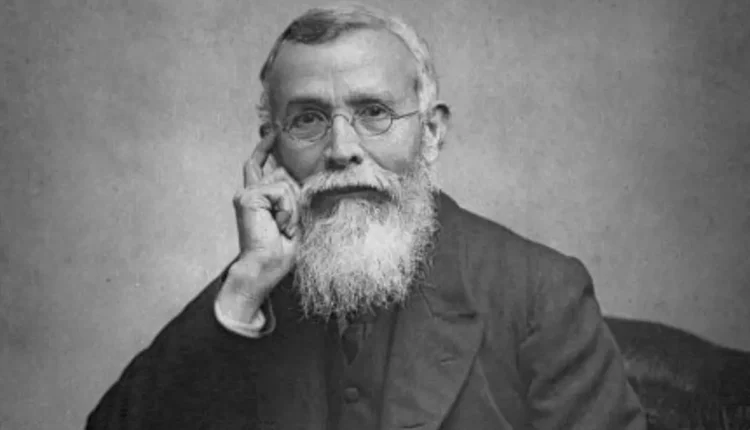In the annals of history, few names stand as tall as that of Dadabhai Naoroji, the Grand Old Man of India. His life, spanning nearly a century from 1825 to 1917, is a testament to unwavering dedication, intellectual brilliance, and an indomitable spirit that championed the cause of Indian independence.
Known as the “Unofficial Ambassador of India,” Naoroji’s multifaceted contributions as an independence activist, political leader, merchant, scholar, and writer have left an indelible mark on the socio-political landscape of India and Britain.
Early Life and Education of Dadabhai Naoroji
Born on September 4, 1825, in Navsari, Gujarat, into a Parsi Zoroastrian family, Dadabhai Naoroji’s early life was steeped in the rich cultural and intellectual traditions of his community.
His education at the Elphinstone Institute School in Mumbai laid a strong foundation for his future endeavors. Under the patronage of Maharaja Sayajirao Gaekwad III of Baroda, Naoroji embarked on a career that would see him rise to become the Diwan of Baroda in 1874.
Advocate for Zoroastrianism and Social Reforms
A devout Athornan (ordained priest), Naoroji was deeply committed to restoring the Zoroastrian religion to its original purity and simplicity. In 1851, he founded the Rahnumai Mazdayasan Sabha (Guides on the Mazdayasne Path) to promote these ideals.
His efforts extended to the publication of the Gujarati fortnightly, the Rast Goftar (The Truth Teller), which sought to clarify Zoroastrian concepts and advocate for Parsi social reforms. His journalistic ventures also included “The Voice of India,” which became a powerful platform for his progressive ideas.
Academic and Entrepreneurial Pursuits
In 1855, Dadabhai Naoroji made history by becoming the first Indian professor at Elphinstone College in Bombay, where he taught Mathematics and Natural Philosophy.
His academic achievements were paralleled by his entrepreneurial spirit. Moving to London, he partnered with Cama & Co, the first Indian company established in Britain, and later founded his own cotton trading firm, Dadabhai Naoroji & Co. His ethical standards and business acumen earned him respect and admiration.
Political Awakening and Advocacy in Britain
Dadabhai Naoroji’s political journey took a significant turn when he moved to Britain. He co-founded the London Indian Society in 1865 and the East India Association in 1867.
These organizations aimed to discuss Indian political, social, and literary subjects and present the Indian perspective to the British public. The East India Association, in particular, played a crucial role in countering the racist propaganda of the Ethnological Society of London, thereby influencing British parliamentary opinions.
Legislative and Political Milestones
Naoroji’s political career reached its zenith when he was elected as a Liberal Party Member of Parliament for Finsbury Central in 1892. As the second person of Asian descent to become a British MP, he broke new ground by taking the oath on his Zoroastrian Khordeh Avesta instead of the Bible.
In Parliament, he tirelessly advocated for Irish Home Rule and the rights of the Indian people, highlighting the detrimental effects of British colonial rule through his pioneering work, “Poverty and Un-British Rule in India.” His theory of the “wealth drain” from India to Britain gained widespread attention and influenced future leaders like Mahatma Gandhi.
Leadership in the Indian National Congress
A stalwart of the Indian National Congress, Naoroji served as its president thrice (1886-1887, 1893-1894, and 1906-1907). His moderate stance and unifying presence helped bridge the ideological divide between the Congress’s moderates and extremists. His presidency in 1906, in particular, was marked by efforts to maintain party unity and steer the movement towards constructive goals.
Legacy and Honors
Dadabhai Naoroji’s legacy extends far beyond his lifetime. His relentless pursuit of justice and equality, combined with his intellectual rigor and compassionate leadership, has left an enduring impact on India’s struggle for independence.
His contributions have been commemorated in various ways, including the Dadabhai Naoroji Awards for services to UK-India relations, inaugurated by Deputy Prime Minister Nick Clegg in 2014. India Post has also honored him with stamps issued in 1963, 1997, and 2017.
Also Read:Ashok Kumar: Bridging Science and Politics for a Better Future

